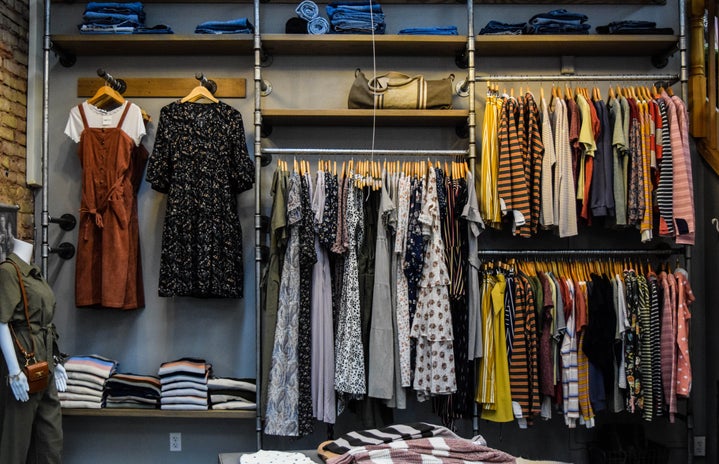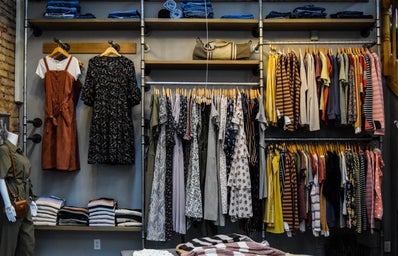The opinions expressed in this article are the author’s own and do not reflect the views of Her Campus.
To quote the Netflix original series Dear White People, “Here are a list of acceptable Halloween costumes: A pirate, slutty nurse, any of our first 43 presidents. Top of the list of unacceptable costumes? Me.”
I get that the black community has a unique sense of style and that our hair is fabulous, but that does not make it okay to wear us as costumes. That also goes for all cultures that are not your own, not just the black community. Newsflash: it’s not funny to run around in a Native American outfit making war cries with a hand over your mouth. That’s just called cultural appropriation.
Image by Elise Regensburger
For clarification, cultural appropriation is taking elements from another race or ethnicity without the consent of that race or ethnicity. Aka cultural appropriation is basically when the oppressor race takes cultural elements from an oppressed race. Not as often, it is also when people pick up elements of another’s culture from growing up in a diverse setting. However, the central disheartening fact about cultural appropriation is that it’s exploiting elements from a race, yet not understanding where it came from or the history behind it.
Culture is not something taken lightly or that exists as a fashion trend. Culture is unique to each group and makes them who they are. Wearing my hair in its natural afro is my way of showing my pride as an African American. It’s a struggle maintaining my hair in its natural state. I can’t wash my hair as often as others. I have to keep it moisturized. If I don’t wear a headscarf before sleeping, my hair is tangled mess that’s not comb friendly. Black hair is often nappy. This is why I don’t appreciate seeing afro wigs on non-black people, or people that don’t naturally have that hair type. Often the person wearing it doesn’t know the struggle of having to constantly pick at that afro to make my hair look the way it does.
Blackface is just a no-go all the way across the board. I wish I could say that blackface is no longer an issue, but that’s not the case. Just read this article by Samantha Escobar about racist college parties, if you don’t believe me. I take the utmost pride in my brown skin; I was born with it and it’s a beautiful shade. It is not to be copied and mocked.
There’s a thin line between cultural appropriation and homage that people are concerned about. My take is that if you’re pretending to be that race and/or if it counts as a stereotype, negative OR positive, it is definitely not a homage. Just don’t do it. I know that isn’t very helpful, so there are a couple questions you can ask yourself if you decide that you want to buy into something that represents another culture, formed by Nadra Kareem Nittle from ThoughtCo. Ask yourself, why you are “borrowing” this piece of culture? Is it genuine interest or are you following a fashion trend? Where is this piece from? Is it made by someone who from that culture? Does it mean something to them? Is it respectful to the people of that culture? How would they feel about it?
The safest bet for Halloween is to not take anything from any culture. Just go with the generic costumes like an angel, ghost, skeleton or animal. Be on the safe side. Please don’t appropriate my culture instead.


